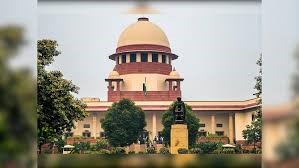Supreme Court Clarifies Governor’s Duty on Assent
Why in the news?
The Supreme Court emphasized that under Article 200 of the Constitution, Governors must communicate reasons for withholding assent to state Bills, while hearing Tamil Nadu’s petitions against Governor R.N. Ravi’s decision to withhold several Bills.
Key Observation by the Supreme Court:
- The Supreme Court emphasized that under Article 200 of the Constitution, the Governor must communicate reasons for withholding assent to Bills passed by the state legislature.
- Justice J.B. Pardiwala, heading a two-judge bench, stated that the Governor plays a significant constitutional role and must clearly express objections to the state legislature.
Case Background:
- The court was hearing petitions filed by the Tamil Nadu government challenging Governor N. Ravi’s decision to withhold assent to certain Bills and forward some to the President.
- One contentious Bill sought to remove the Governor as Chancellor of state universities, which the Attorney General (AG) R. Venkataramani argued was repugnant to UGC Regulations.
Key Arguments and Court Remarks
- The court questioned the lack of communication from the Governor, asking why the state was not informed about the grounds for repugnancy.
- Justice Pardiwala highlighted that inherent powers of the Governor cannot override main constitutional provisions.
- The AG referenced previous constitutional bench rulings, stating that Governors have limited discretionary powers but noted that exceptions mentioned in those judgments are not exhaustive.
About Article 200 of the Indian Constitution:
Key Provisions:
- Assent to the Bill: The Governor approves the Bill, making it a law.
- Withhold Assent: The Governor may refuse to sign the Bill.
- Return the Bill: The Governor can return the Bill (except Money Bills) for reconsideration.
- Reserve for President’s Consideration: The Governor may refer the Bill to the President if it violates the Constitution or conflicts with Central laws.
Significance:
- Ensures checks and balances between the State Legislature and Governor.
- Protects Constitutional principles through review mechanisms.
- Prevents hasty or unconstitutional legislation by allowing reconsideration.
This case underscores the importance of maintaining transparency and communication between the Governor and the state legislature to uphold constitutional principles.






